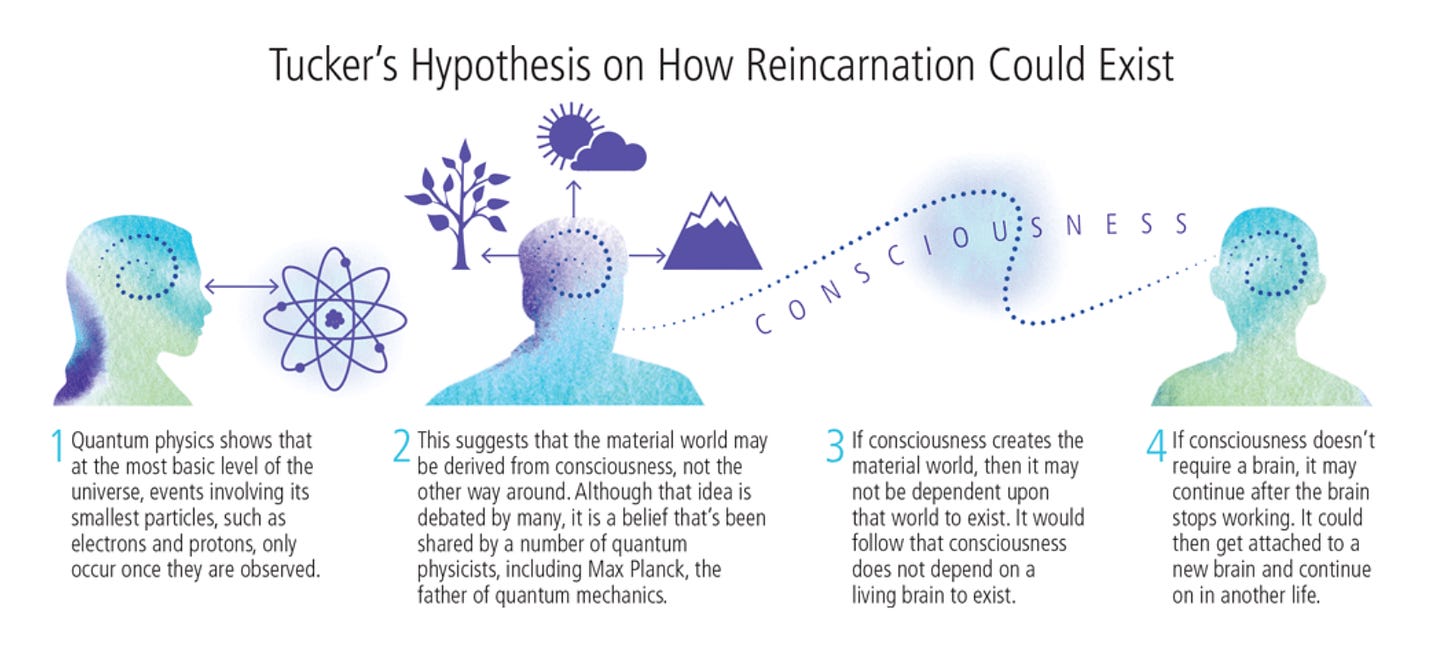Reincarnation. What is it?
A concept both ancient and mysterious, the idea of “reincarnation” threads through the fabric of Buddhist philosophy, Hindu teachings, and other Eastern spiritual traditions.
Buddhism provides a number of theories. Theravada Buddhism speaks of rebirth driven by karma without a permanent self, while Tibetan Buddhism offers intricate stories of the Bardo and the delicate transition between lives. Hinduism portrays the cycle as samsara, a wheel turning endlessly until enlightenment breaks the loop. There exists a spectrum of beliefs on the topic, generally viewing it as a cyclical process of the soul being reborn into new physical forms — the journey being a path of learning and spiritual evolution.
The details change from faith to faith, but the essence stays the same: life, death, and rebirth.
Now, the million dollar question. Is it real?
There are intriguing narratives that suggest reincarnation isn’t merely myth. Scholars like Dr. Ian Stevenson have painstakingly documented thousands of cases of children vividly recalling past lives, complete with verifiable details and birthmarks matching injuries from claimed previous incarnations. Books such as Life Before Life by Dr. Jim Tucker gently nudge the boundary between science and spirituality.
It is nearly impossible not to be skeptical of these accounts. While evidence is being compiled, skepticism remains healthy and necessary. One primary issue is that under current models, there is no way of proving — nor disproving — the research.
In that sense, the science of reincarnation is akin to string theory. Not disprovable. But not provable either.
Furthermore, there are no well-established or widely accepted explanations of possible mechanisms behind rebirth. Even if these anecdotal cases were real, and not the result of fraud or confirmation bias, we need to have some idea of how reincarnation happens. Of course, many proposals have been put forth.
Theories for this information transfer could potentially align with quantum mechanics, consciousness studies, or the multi-world interpretations of physics. If consciousness isn’t strictly tied to a body but is instead some broader quantum phenomenon, perhaps reincarnation is less mystical and more an extension of natural law we simply don’t fully grasp yet.
My own understanding of reincarnation is neither mythical nor scientific, per se.
A secular take on reincarnation beings with this: I see each morning as a kind of rebirth. Yesterday’s self fades (in a way, dies) with sleep, and today’s self emerges fresh, different, new. Pretty cool, right?
Well, this daily cycle of death and rebirth is perhaps obvious. It goes deeper than that.
Under this conceptualization of rebirth, it doesn’t necessarily stop at sleeping and waking. In a way, we’re reborn every moment. We’re reborn in every interaction, every breath, every small epiphany. In this view, reincarnation isn’t just across lifetimes but is year-to-year, season-to-season, day-to-day, moment-to-moment, continuous even. An internal process as much as it is cosmic.
Cycles are everywhere. Days blend into weeks, seasons fade into one another, years form patterns, lives stretch into eons. Everything circles back, returns, evolves, never quite repeating exactly but echoing infinitely. Reincarnation isn’t just about what happens after death; it's about noticing the patterns and embracing the constant change. Every ending births a beginning, every pause the stage for another act.
And that, to me, is comforting. Maybe that comfort is enough.







This was awesome. The quantum theory of consciousness reminded me of some of the ansible shenanigans in Enders game. I also think it’d add a layer of mysticism to each day if we told people we “reincarnated” that morning instead of saying that we “woke up”.
Thanks for the shout up, the meme was gas ;)